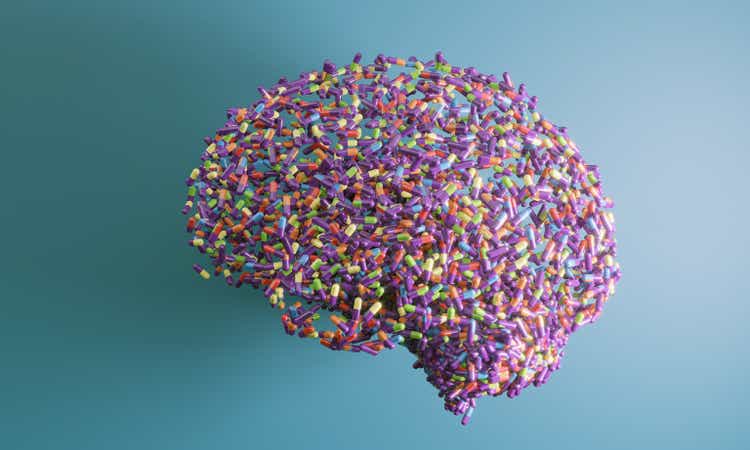
Eoneren
Update: Adds additional information
Neurocrine Biosciences (NASDAQ:NBIX) said on Wednesday its experimental oral drug (NBI-1117568) to treat adults with schizophrenia met the primary goal in a mid-stage study.
The NBI-‘568-SCZ2028 dose-finding study met its primary endpoint for the once-daily 20mg dose, demonstrating a statistically significant 7.5-point improvement (p=0.011, 0.61 Effect Size) in the PANSS Total Score, compared to placebo at week 6 with an 18.2-Point PANSS Total Score improvement from baseline.
The drug was generally safe and well tolerated at all doses studied in the Phase 2 clinical trial, Neurocrine said, supporting its advancement to Phase 3 trial in early 2025.
Despite the positive top-line data, shares of the biopharmaceutical company fell 17% premarket on Wednesday as investors appeared somewhat disappointed that the results did not match up to a rival candidate from Bristol Myers Squibb (BMY) which could win U.S. approval next month.
The study was highly anticipated by investors as two other developers of schizophrenia treatments were acquired late last year.
In December, AbbVie (ABBV) acquired Cerevel Therapeutics for about $9B and Bristol (BMY) bought Karuna Therapeutics for about $14B.
Neurocrine’s results are comparable to that of Karuna’s drug, KarXT, which led to an 8.4-point reduction on the scale vs. placebo after five weeks of treatment, meeting the goal of a larger study. The U.S. FDA is expected to decide on whether to clear Karuna’s drug by Sept. 26.
Cerevel, meanwhile, is likely to furnish data from mid-stage trials of its schizophrenia drug later this year.
